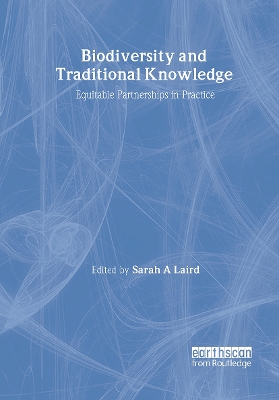People and Plants International Conservation
3 total works
Tapping the Green Market
by Abraham Guillen, Sarah A. Laird, Alan R. Pierce, and Patricia Shanley
Biodiversity research and prospecting are long-standing activities taking place in a new legal and ethical environment. Following entry into force of the Convention on Biological Diversity in 1993, and other recent policy developments, expectations and obligations for research and prospecting partnerships have changed. However, to date there are few guides to integrating these concepts with practice.
This book offers practical guidance on how to arrive at equitable biodiversity research and prospecting partnerships. Drawing on experience and lessons learned from around the world, it provides case studies, analysis and recommendations in a range of areas that together form a new framework for creating equity in these partnerships. They include researcher codes of ethics, institutional policies, community research agreements, the design of more effective commercial partnerships and biodiversity prospecting contracts, the drafting and implementation of national 'access and benefit-sharing' laws, and institutional tools for the distribution of financial benefits.
As part of the People and Plants initiative to enhance the role of communities in efforts to conserve biodiversity and use natural resources sustainably, Biodiversity and Traditional Knowledge will be invaluable to students, researchers and local communities, academic institutions, international agencies, government bodies and companies involved in biodiversity research, prospecting and conservation.
Biodiversity Research, Bioprospecting and Commercialization
by Sarah A. Laird and Rachel Wynberg
The access and benefit-sharing (ABS) policy process of the Convention on Biological Diversity (CBD), and wider discussions about the ethical and conservation issues arising from the commercial use of biodiversity and traditional knowledge, depend upon a well-developed understanding of the activities known broadly as 'bioprospecting'. However, the pace at which our understanding of genetic and other biological resources is accelerating, and market and industry trends are also undergoing constant change.
This book provides information and insights into current practices and trends in biodiversity research and bioprospecting, including for potential medicines, food and cosmetics. It presents background information on markets, research and development, and explores recent extraordinary developments in science and technology and their implications for ABS policy development and implementation. The authors present a brief history of the commercial use of biodiversity, and review key trends across sectors. The book continues with chapters devoted to the main industry sectors, including pharmaceuticals and healthcare, agriculture, industrial process biotechnology and food and beverages. Each chapter includes explanatory boxes to describe key technologies and concepts which are less widely understood, as well as input from various stakeholders including industry representatives, NGOs and researchers. It concludes with a review of industry awareness of and engagement with the CBD, ABS and other policy processes. It is an invaluable resource for all concerned with commercial bioprospecting and the implementation of ABS laws and regulations, particularly in light of the adoption of the Nagoya Protocol.

